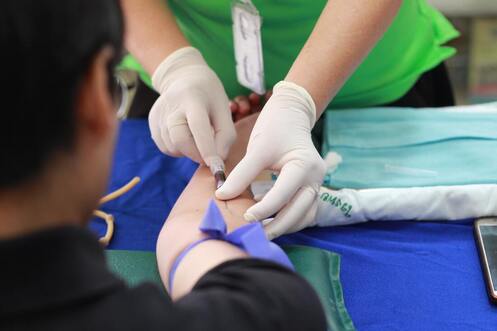 The following blood tests are worth requesting from your family doctor/GP if you have been struggling with...
If your doctor wont order all or some of these tests (sometimes there are public health funding reasons for this), it’s worth investing in having them done via a private lab. It will cost more but then you have a baseline to work from as you work on your health. And as you focus on improving your health, blood tests only need to be repeated once every six to 12 months at most.
0 Comments
 I'm sharing a list of things that can spike or worsen my OCD, rumination, anxiety, and stress. AND a list of things that have supported my recovery from 19 years of OCD, that make me feel happy in my soul, and which help to quiet my mind. I lived with moderate to severe OCD for 20 years. It eventually became so debilitating that leaving my house became a struggle. After finally deciding enough was enough and committing to working on all aspects of my mental and physical health in my early 30s, I experienced 80–90% reduction in my symptoms of OCD.
Nutrition was one of the tools that helped most. This led to me studying to become a nutritionist, and eventually writing my ebook, Nutrition for Your OCD Recovery. It’s available in Kindle and pdf formats here. This article touches on the topics covered in chapter 8 of my ebook: genetic factors that can play a role in OCD.  When a picture doesn't say a thousand words....this photo was taken December 2014, as I was plunging into an OCD relapse. When a picture doesn't say a thousand words....this photo was taken December 2014, as I was plunging into an OCD relapse. I lived with moderate to severe OCD for 20 years. It eventually became so debilitating that I struggled to leave my house. After finally deciding enough was enough and committing to working on all aspects of my mental and physical health in my early 30s, I experienced 80–90% reduction in my symptoms of OCD. Nutrition was one of the tools that helped most. This led to me studying to become a nutritionist, and eventually writing my ebook, Nutrition for Your OCD Recovery. It’s available in Kindle and pdf formats here. This article discusses my experience of relapse after recovery.  Herbal tea - a far better friend to your nervous system than coffee or tea. Herbal tea - a far better friend to your nervous system than coffee or tea. I lived with moderate to severe OCD for 20 years. It eventually became so debilitating that leaving my house became a struggle. After finally deciding enough was enough and committing to working on all aspects of my mental and physical health in my early 30s, I experienced 80–90% reduction in my symptoms of OCD. Nutrition was one of the tools that helped most. This led to me studying to become a nutritionist, and eventually writing my ebook, Nutrition for Your OCD Recovery. It’s available in Kindle and pdf formats here. This article discusses a nutrition and lifestyle change that my clients routinely report leads to reduced frequency, intensity and duration of their OCD spikes: taking a break from caffeinated drinks. You’ll learn how caffeine impacts your nervous system. And I’ll share why I went cold turkey on caffeinated drinks for 6 years (yup!), after 19 years of suffering with OCD, and the changes I experienced as a result. |
